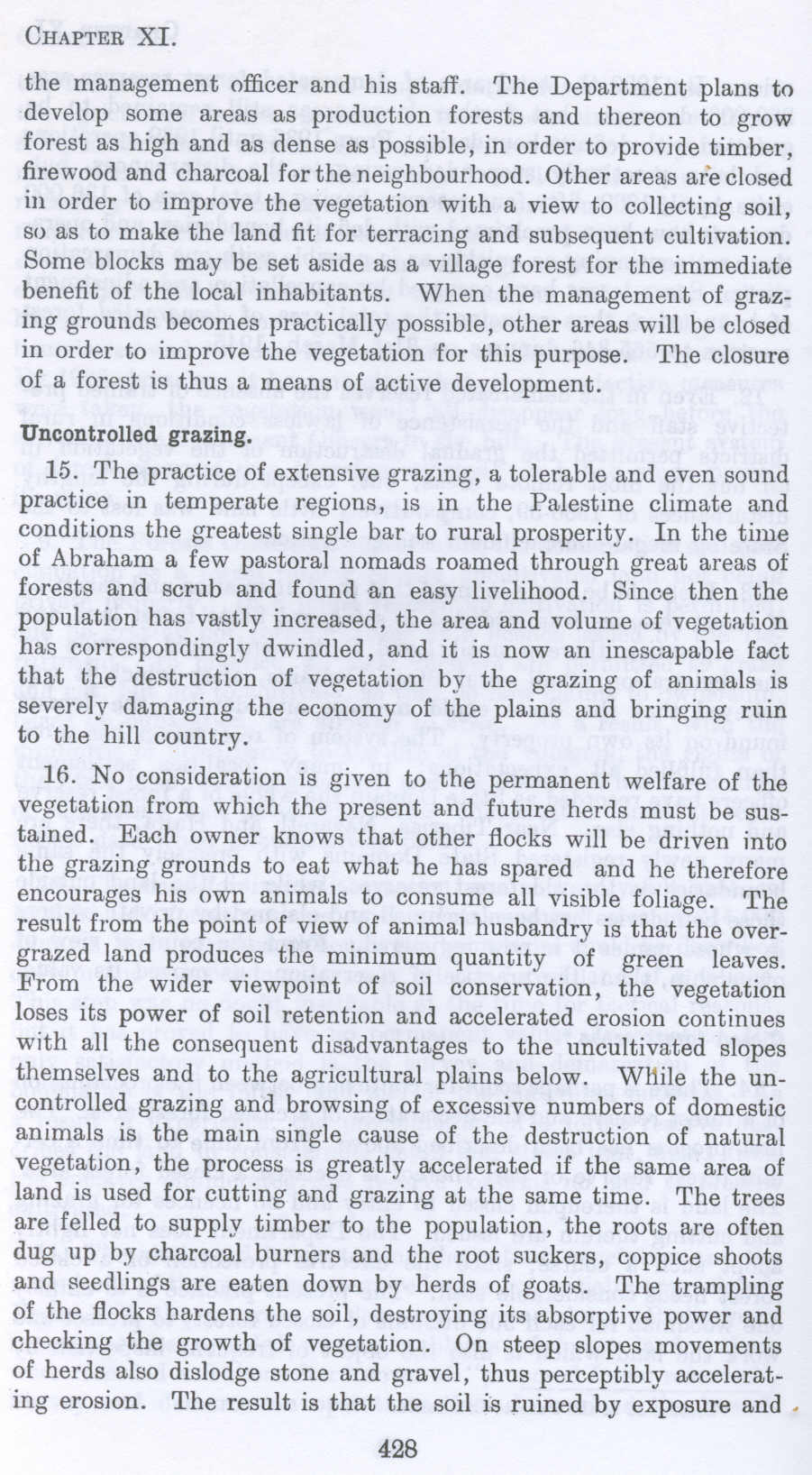| Prev | Next |  |
| Prev | Next |
| PalestineRemembered | About Us | Oral History | العربية | |
| Pictures | Zionist FAQs | Haavara | Maps | |
| Search |
| Camps |
| Districts |
| Acre |
| Baysan |
| Beersheba |
| Bethlehem |
| Gaza |
| Haifa |
| Hebron |
| Jaffa |
| Jericho |
| Jerusalem |
| Jinin |
| Nablus |
| Nazareth |
| Ramallah |
| al-Ramla |
| Safad |
| Tiberias |
| Tulkarm |
| Donate |
| Contact |
| Profile |
| Videos |
Uncontrolled Grazing in Palestine before 1948 (Nakba), British Mandate: A Survey of Palestine: Volume I - Page 428. Chapter XI: Irrigation and Drainage |
Disclaimer
The above documents, article, interviews, movies, podcasts, or stories reflects solely the research and opinions of its authors. PalestineRemembered.com makes its best effort to validate its contents.


Post Your Comment
*It should be NOTED that your email address won't be shared, and all communications between members will be routed via the website's mail server.
the management officer and his staff. The Department plans to develop some areas as production forests and thereon to grow forest as high and as dense as possible, in order to provide timber, firewood and charcoal for the neighbourhood. Other areas are closed in order to improve the vegetation with a view to collecting soil, so as to make the land fit for terracing and subsequent cultivation. Some blocks may be set aside as a village forest for the immediate benefit of the local inhabitants. When the management of grazing grounds becomes practically possible, other areas will be closed in order to improve the vegetation for this purpose. The closure of a forest is thus a means of active development.
Uncontrolled grazing.
15. The practice of extensive grazing, a tolerable and even sound practice in temperate regions, is in the Palestine climate and conditions the greatest single bar to rural prosperity. In the time of Abraham a few pastoral nomads roamed through great areas of forests and scrub and found an easy livelihood. Since then the population has vastly increased, the area and volume of vegetation has correspondingly dwindled, and it is now an inescapable fact that the destruction of vegetation by the grazing of animals is severely damaging the economy of the plains and bringing ruin to the bill country.
16. No consideration is given to the permanent welfare of the vegetation from which the present and future herds must be sustained. Each owner knows that other flocks will be driven into the grazing grounds to eat what be has spared and he therefore encourages his own animals to consume all visible foliage. The result from the point of view of animal husbandry is that the overgrazed land produces the minimum quantity of green leaves. From the wider viewpoint of soil conservation, the vegetation loses its power of soil retention and accelerated erosion continues with all the consequent disadvantages to the uncultivated slopes themselves and to the agricultural plains below. While the uncontrolled grazing and browsing of excessive numbers of domestic animals is the main single cause of the destruction of natural vegetation, the process is greatly accelerated if the same area of land is used for cutting and grazing at the same time. The trees are felled to supply timber to the population, the roots are often dug up by charcoal burners and the root suckers, coppice shoots and seedlings are eaten down by herds of goats. The trampling of the flocks hardens the soil, destroying its absorptive power and checking the growth of vegetation. On steep slopes movements of herds also dislodge stone and gravel, thus perceptibly accelerating erosion. The result is that the soil is ruined by exposure and
Page 428